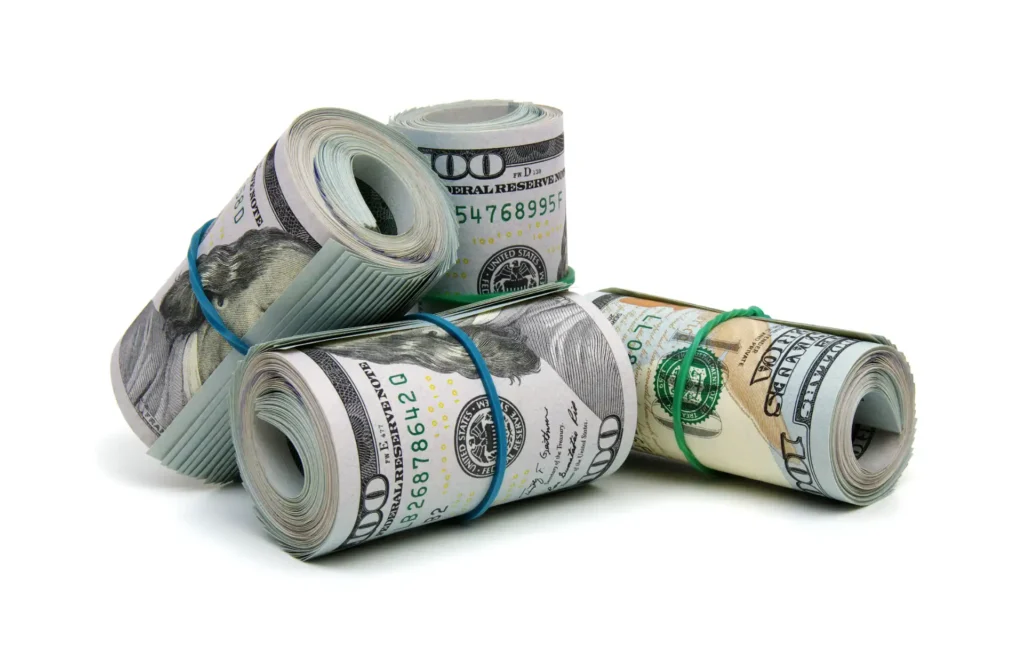
Cash limits: How much cash can you travel with?
When planning your travels, one crucial question often arises: How much cash can you travel with?
Whether you’re jetting off on a holiday or embarking on a business trip, understanding the limits on carrying cash is vital. This isn’t just about legality; it’s also about safety and convenience.
In this blog post, we’ll explore the rules for carrying cash both internationally and from the UK, helping you to prepare better and avoid any potential issues at customs.
Stay tuned as we delve into specific country guidelines, offering a clear roadmap of what to expect when packing your wallet for an overseas adventure.
Understanding cash limits
Every country has its own rules regarding travelling with cash. These rules determine how much money you can carry across borders to prevent money laundering, tax evasion, and other illegal activities.
Generally, if you plan to travel with a significant amount of cash, you must declare it to customs upon arrival and, sometimes, before departure. Failure to do so can lead to hefty fines or even legal trouble.
The limit for carrying cash varies widely from one country to another, often set around a figure that could raise concerns about its intended use.
For instance, many countries, particularly within the European Union, have established a common threshold of €10,000 or its equivalent in local currency.
This means if you’re travelling with amounts exceeding this value, you must declare it at customs.
Along with cash, bearer bonds must also be declared if their combined value exceeds the set threshold.
Understanding these rules is essential for legal compliance and for planning travel finances safely and effectively.
Get travel money fast
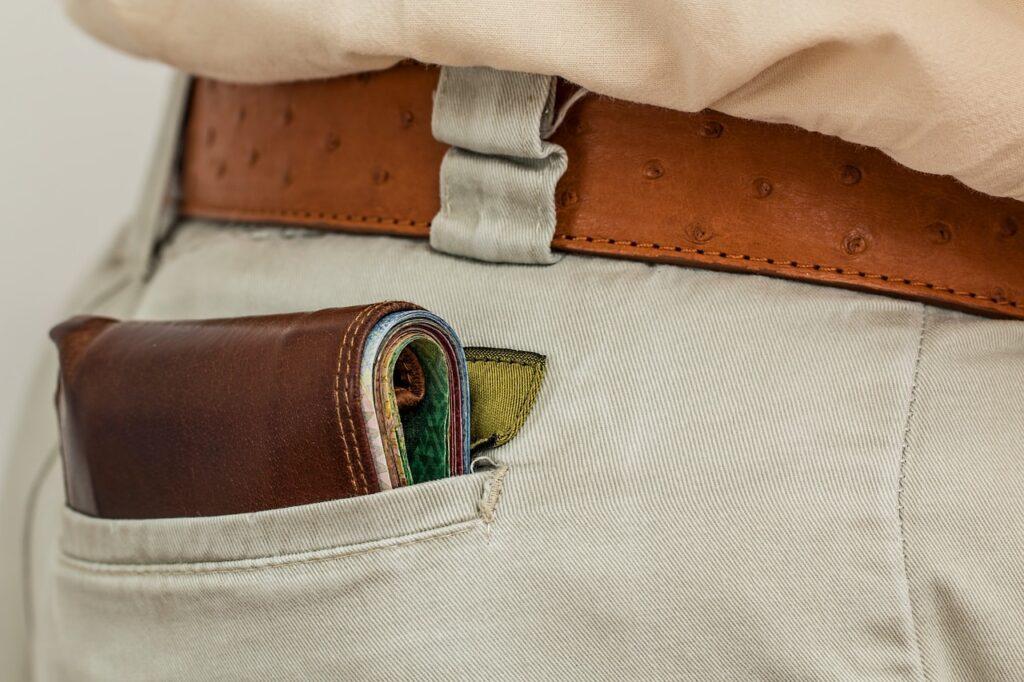
How much cash can you travel with from the UK?
It’s important to know the rules when leaving the UK with a substantial sum of money.
The UK doesn’t restrict how much money you can take out of the country, but if you carry £10,000 or more or its equivalent in foreign currency, you must fill in a declaration form and submit it to HM Revenue and Customs (HMRC).
This declaration helps prevent money laundering and ensures that the movement of large sums is tracked.
The process involves completing a form either online or at the airport, detailing the amount and the reason for transporting such funds. Failing to declare could result in the seizure of the cash or even legal penalties!
Understanding and complying with these requirements will ensure a smooth start to your travels and keep you on the right side of the law.
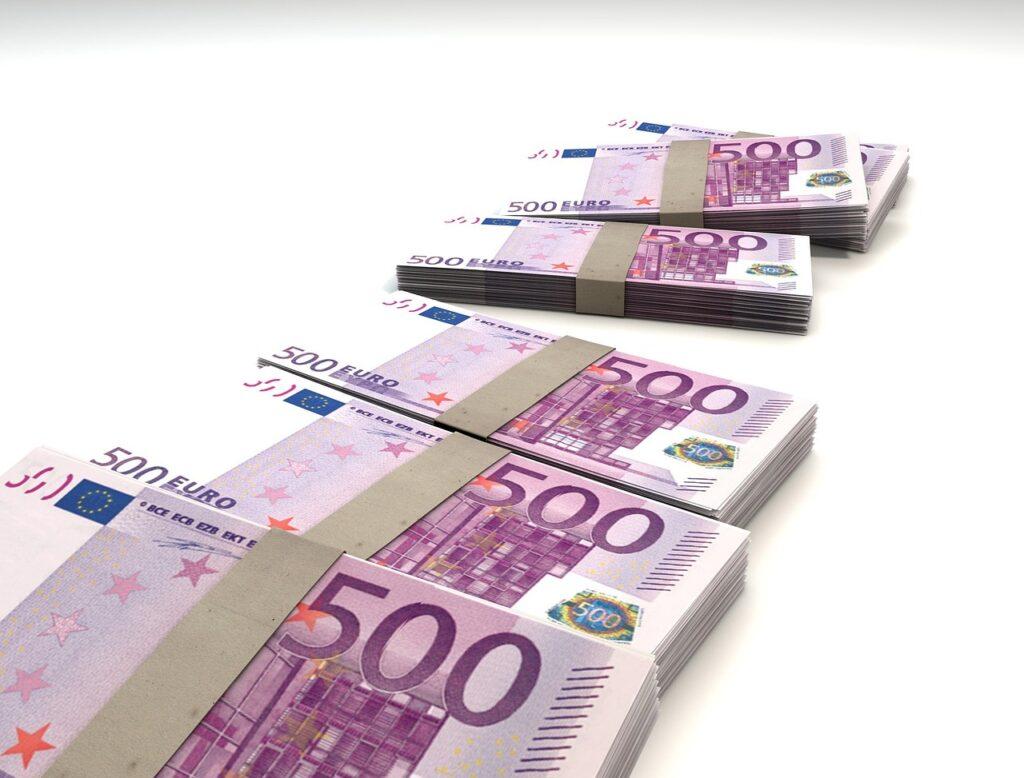
Cash limits by destination
Be aware that different countries may require you to declare varying amounts of money at customs, depending on their specific anti-money laundering laws.
How much cash can you travel with to Australia?
Travellers entering or leaving Australia with AUD 10,000 or more in cash must declare it to the Australian Customs Service. This ensures that travel with large sums is transparent and lawful.
How much cash can you travel with to India?
For those travelling to India, the limit for carrying foreign currency in cash is USD 5,000, and the total amount of currency (including travellers’ cheques) should not exceed USD 10,000. It’s crucial to declare any amount exceeding this to the Indian Customs Authority.
How much cash can you travel with to Thailand?
In Thailand, any person carrying over THB 450,000 in or out of the country must declare it. This high threshold is part of Thailand’s measures to monitor large financial movements and prevent illicit activities.
How much cash can you travel with to Turkey?
Travellers to Turkey carrying more than EUR 10,000 or equivalent in other currency must declare this at customs. Non-declaration can lead to fines or confiscation of the cash.
How much cash can you travel with in South Africa?
Those entering or leaving South Africa with more than ZAR 25,000 in cash must declare it. The South African Reserve Bank monitors such movements to ensure compliance with local regulations.
How much cash can you travel to Europe with?
If you travel between European countries, you must declare amounts exceeding €10,000. This rule helps EU countries keep track of large cash movements that might be related to criminal activities.
When declaring cash, remember to include all forms of currency, including both notes and coins, to ensure total compliance with customs regulations.
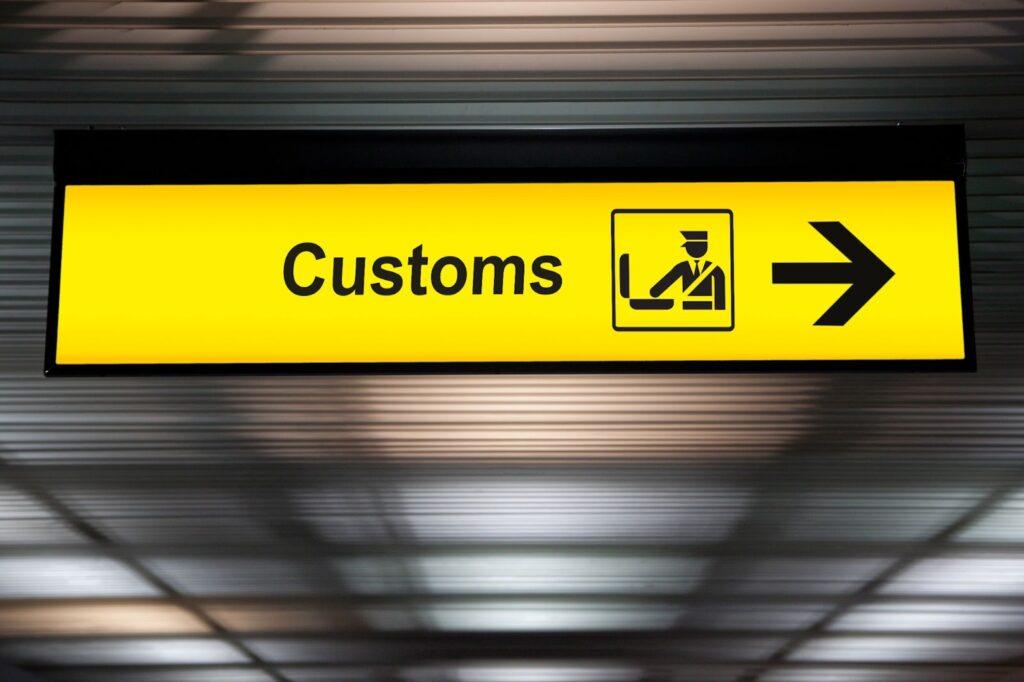
Best practices for carrying cash internationally
Carrying significant amounts of cash while travelling can pose risks, but you can mitigate these with careful planning. Here are some tips to ensure your money remains secure throughout your journey:
- Divide your cash: Avoid keeping all your money in one place. Distribute it between your carry-on, checked luggage, and a money belt or hidden pouch worn close to your body.
- Use a money belt: A money belt is a discreet way to carry and protect large amounts of cash. It keeps your money out of sight and safe from potential pickpockets.
- Stay informed: Before your trip, check the latest customs regulations regarding cash limits for your destination. This will help you avoid legal troubles and comply with local laws.
- Consider alternatives to cash: Where possible, use safer alternatives like travellers’ cheques and money orders, prepaid travel cards, or debit cards and credit cards. These offer additional security and can be replaced if lost or stolen.
- Keep documentation: If you’re carrying a large sum, keep documentation explaining the cash source. This can be crucial if customs or other authorities question you during your travels.
- Be discreet: When carrying cash, be discreet to avoid attracting attention. Also, be cautious when withdrawing money from ATMs and avoid doing so in less secure locations.
Implementing these practices will help you effectively manage and protect your cash, reducing the risks of carrying large sums during international travel.
Get travel money fast
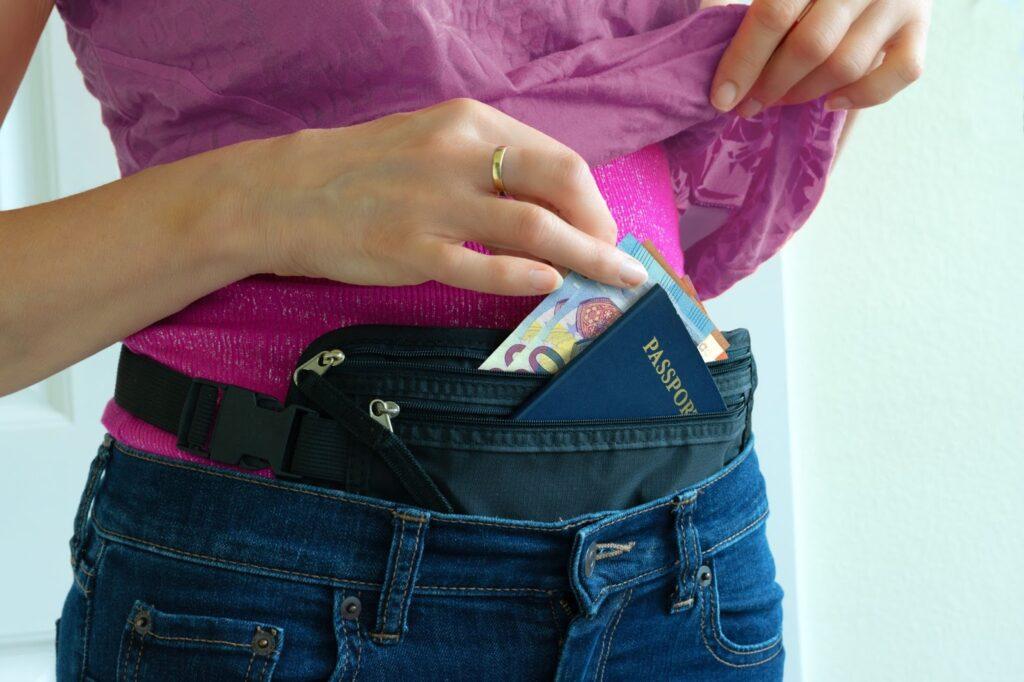
Why use Manor FX for your travel cash?
Ultimate ease and accessibility
With our service, you can experience unparalleled convenience. Avoid queues at traditional exchange bureaus and ATMs and enjoy a streamlined process right from home.
Top exchange offers
Get more for your money with our superior exchange rates. Our rates consistently outperform those offered at airports, banks, and local exchange spots, making your money go further.
Enhanced security
Opt for our secure home delivery service and sidestep the potential risks of transporting large sums of cash. Rest assured, every transaction you make with us is fully insured for your peace of mind.
Diverse currency options
Through our service, you can explore an extensive selection of currencies, including some that are rare or typically hard to obtain. We have you covered whether you need closed, partially restricted, or widely available currencies.
Transparent pricing
Say goodbye to unexpected fees. Our straightforward pricing means you always know what you’re paying without any surprises.
Effective budget management
Take control of your travel finances. Pre-purchasing your foreign currency allows for precise budgeting, helping you keep track of your spending while abroad.
Always available
Access our currency exchange services at any time with our 24/7 online platform. Convert your British pounds into foreign currency whenever it suits you, from any location.
Convenient buyback options
Upon returning from your travels, easily convert leftover currency back to British pounds with our efficient buyback service.

Takeaways
Understanding the cash limits for international travel is essential for any traveller.
Being aware of how much cash you can legally carry and the requirements for declaring it can help you avoid potential fines and legal issues.
Whether you’re travelling for leisure or business, ensuring compliance with these regulations keeps you safe and makes your journey smoother and more enjoyable.
Planning to travel with cash soon? Visit our bureau de change for expert advice on currency exchange and more tips on handling finances while travelling.
We’re here to help you make informed decisions and ensure your travels are both fun and hassle-free.
FAQs
How much cash can I take on a plane?
The amount of cash you can take on a plane varies depending on the country you are flying from and to.
Generally, the amount of cash you can carry on flights within most countries, including the US and the UK, is unlimited.
However, you must declare cash amounts that exceed certain thresholds when entering or leaving a country.
Here are some common regulations:
- In the European Union: If you travel between or within EU countries, you must declare cash of €10,000 or more to customs authorities.
- From the UK: There’s no restriction on how much cash you can take out of the UK, but if it’s £10,000 or more (or equivalent in foreign currency), you must declare it to HM Revenue and Customs.
- To and from the USA: When entering or leaving the US, you must declare any amount of cash or monetary instruments exceeding $10,000.
- Other countries: Each country may have its own limits and declaration requirements, so it’s essential to check the specific rules for your destination and any transit countries.
It’s always a good idea to check the latest guidelines from official sources or consult a travel advisor before your trip to ensure you comply with all legal requirements and avoid any issues during your journey.
How much cash can you carry on a plane in Europe?
When travelling by plane within Europe, especially within the European Union (EU), you need to be aware of specific cash-carrying regulations:
- Within the EU: If you’re travelling between EU countries or carrying cash on a flight that departs from or arrives in an EU country, you must declare any amount of cash of €10,000 or more to customs authorities. This includes cash in euros or its equivalent in other currencies, as well as other monetary instruments like bonds, stocks, or cheques.
- Within Schengen Area: The same rules apply; you must declare cash amounts of €10,000 or more.
- Non-EU European countries: Countries outside the EU but within Europe, such as Norway, Switzerland, and Iceland, may have different thresholds and rules. It’s essential to check specific regulations for each country.
Remember, these rules are in place to combat money laundering and other financial crimes. Always verify the latest regulations from official sources before you travel to ensure compliance and avoid potential fines or legal issues.
Can you put cash in your hand luggage?
Yes, you can put cash in your hand luggage when travelling by plane. In fact, it’s often recommended to carry your money in your carry-on bag rather than in checked luggage.
This helps keep your money secure and within your sight at all times during your journey.
However, it’s important to consider a few points when carrying cash in your hand luggage:
- Security: To minimise the risk of theft, keep your cash discreetly stored, and consider using a money belt or a secure compartment within your bag.
- Customs regulations: If you carry large amounts of cash, be aware of any declaration requirements. Depending on your destination, you may need to declare it at customs if it exceeds certain thresholds.
- Airline policies: Check with your airline for specific guidelines or restrictions regarding carrying cash.
By keeping these considerations in mind, you can ensure that your cash remains safe and that you comply with all relevant regulations during your travels.
How much cash can you travel with internationally?
When travelling internationally, you can carry any amount of cash, but you usually must declare amounts over $10,000 or the equivalent in other currencies to customs officials.
This regulation helps prevent money laundering and ensures all large transactions are monitored.
Always check the specific rules of the countries you are visiting or transiting through, as they may have different thresholds or requirements.
How much cash can you travel abroad with?
You can travel abroad with any amount of cash, but usually, you must declare if you’re carrying more than $10,000 or its equivalent in other currencies.
This rule helps authorities monitor large sums of money crossing borders to prevent illegal activities like money laundering.
Always check the regulations specific to your destination and any transit countries to ensure compliance.